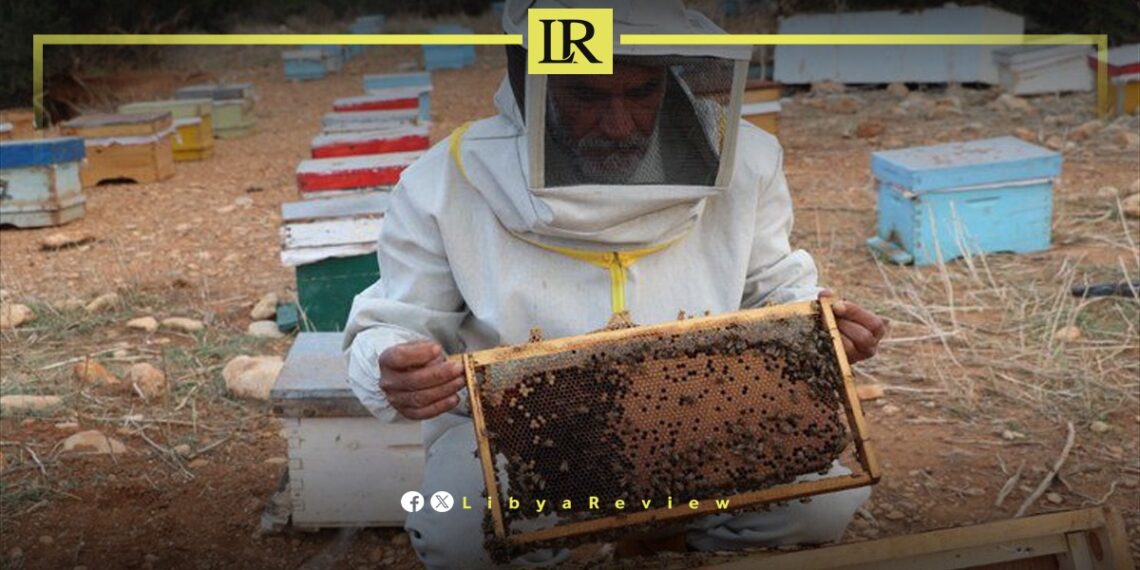As the world celebrates World Bee Day on May 20th, a United Nations initiative aimed at raising awareness of the importance of bees and pollinators, Libya has marked the occasion with notably low honey production figures compared to its Maghreb neighbors.
This year, Libya produced a mere 739 tons of honey, significantly less than Morocco’s leading production of 7,500 tons.
The United Nations’ resolution establishing World Bee Day highlights the crucial role of bees and other pollinators in sustainable development, while also drawing attention to the threats they face, particularly from pesticides. These chemicals are responsible for annually killing large numbers of bees and other beneficial insects.
The aim of World Bee Day is not only to promote awareness but also to encourage measures to protect bees and other pollinators. Such efforts are vital for addressing global food supply challenges and combating hunger in developing countries, making the protection of these small but essential creatures a key factor in achieving broader environmental and humanitarian goals.
Libya has been in chaos since a NATO-backed uprising toppled longtime leader Muammar Gaddafi in 2011. The county has for years been split between rival administrations.
Libya’s economy, heavily reliant on oil, has suffered due to the ongoing conflict. The instability has led to fluctuations in oil production and prices, impacting the global oil market and Libya’s economy.
The conflict has led to a significant humanitarian crisis in Libya, with thousands of people killed, and many more displaced. Migrants and refugees using Libya as a transit point to Europe have also faced dire conditions.
The planned elections for December 2021 were delayed due to disagreements over election laws and the eligibility of certain candidates. This delay has raised concerns about the feasibility of a peaceful political transition.
Despite the ceasefire, security remains a significant concern with sporadic fighting and the presence of mercenaries and foreign fighters. The unification of the military and the removal of foreign forces are crucial challenges.


